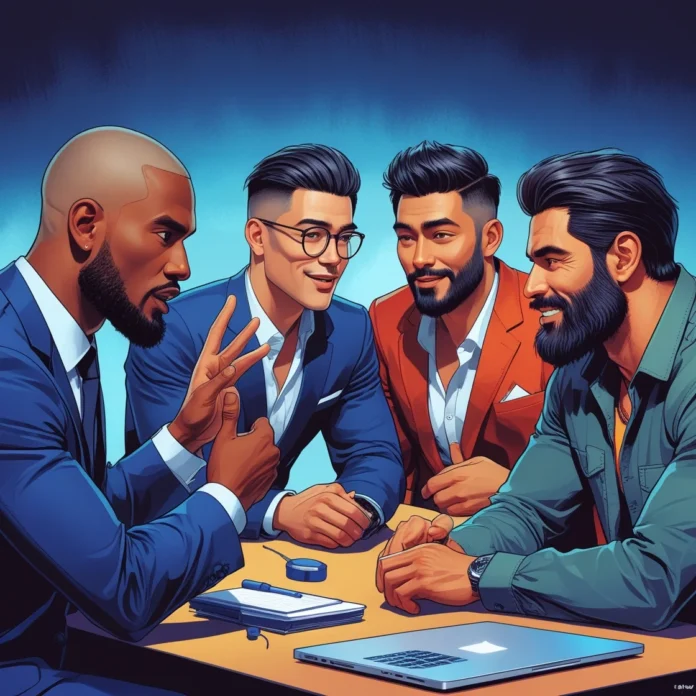Introduction to Evolution of Masculinity
Masculinity has long been a topic of debate, shaped by cultural shifts, political discourse, and societal expectations. In recent years, discussions surrounding gender roles have intensified, with some arguing that traditional masculinity is under threat, while others believe it is merely evolving. The modern era presents a landscape where men are encouraged to embrace a broader, more nuanced definition of masculinity—one that values emotional openness, equality, and individuality. This shift does not mean the abandonment of traditional masculinity but rather an expansion of its definition, allowing men to navigate their identities with greater freedom and authenticity.
The Changing Perception of Masculinity
For decades, masculinity was associated with strength, dominance, and stoicism. However, recent studies suggest that men themselves are seeking a redefinition, acknowledging that these traits alone do not define their identity in today’s world.
- A Pew Research Center survey found that a majority of men believe society places too much emphasis on traditionally masculine traits, such as physical strength and risk-taking, often at the expense of emotional well-being.
- Conversely, many believe there is not enough emphasis on traits like emotional openness and compassion, which are increasingly recognized as valuable aspects of personal and professional success.
- Notably, younger men are leading the charge in redefining masculinity, supporting the idea that men should be free to express vulnerability and embrace non-traditional roles without fear of judgment or diminished societal standing.
- The workplace and home dynamic is evolving as well, with more men embracing caregiving roles and striving for work-life balance, challenging outdated norms that equate masculinity with relentless ambition and detachment from family responsibilities.
The Political and Cultural Influence on Masculinity
Political movements and cultural trends have played a significant role in shaping discussions around masculinity. During election cycles, some political figures have framed masculinity as being under attack, claiming that progressive ideals have contributed to a decline in traditional male identity. However, research and real-world trends indicate a more complex reality.
- Men are not rejecting masculinity but are advocating for a broader, more positive definition that allows for personal growth and adaptability.
- Many believe the push for gender equality has been necessary but feel conversations around masculinity often skew negative, making some hesitant to discuss their own challenges.
- While some conservative narratives promote a return to traditional gender roles, most men surveyed do not advocate for a complete reversal but rather an adjustment that recognizes both strength and sensitivity, ensuring that men can be leaders, caregivers, and emotionally intelligent individuals.
- Social movements have contributed to a shift in male expectations, particularly regarding consent, communication, and emotional labor, leading to healthier relationships and interactions between men and women.

Redefining Positive Masculinity
Men today are embracing a version of masculinity that allows for flexibility, acknowledging that societal expectations should not dictate how they express themselves. This redefinition includes:
- Emotional Expression: Men are increasingly encouraged to talk about their feelings, a shift from past generations where emotional restraint was viewed as a sign of strength. This has led to greater acceptance of therapy, support groups, and open discussions about mental health.
- Support for Gender Equality: Many men support women’s progress in education and careers while also seeking acknowledgment of their own struggles, such as declining college enrollment and workplace representation. Rather than viewing gender equality as a threat, they see it as an opportunity for collaboration and mutual empowerment.
- Challenging Toxic Norms: The idea that masculinity must be tied to aggression, dominance, or rigid roles is being questioned. Instead, men are embracing more well-rounded identities that allow them to be caregivers, partners, and leaders in non-traditional ways. This shift has also led to increased engagement in activities that were once considered “feminine,” such as parenting, cooking, and the arts, without fear of losing their masculinity.
- Men’s health and wellness have become central topics, with greater awareness around issues like body image, self-care, and work-related stress. The pressure to conform to unrealistic physical standards is being challenged, making space for a more inclusive and healthy definition of masculinity.
The Role of Media and Public Discourse
Public figures, social media influencers, and podcasters have contributed to evolving discussions about it. While some voices amplify traditional gender norms, others encourage open conversations about mental health, fatherhood, and the pressures men face in today’s world. This diversity in discourse is helping reshape societal perceptions.

- Men’s mental health advocacy has gained traction, with increasing awareness around depression and anxiety among men, leading to the normalization of seeking help.
- Podcasts and media outlets are fostering honest discussions about the balance between traditional masculinity and modern expectations, creating platforms where men feel seen and heard without judgment.
- Corporate and academic spaces are recognizing the need for inclusivity, ensuring that men’s concerns are addressed alongside those of women. This includes programs focused on fatherhood, mentorship, and redefining leadership styles in professional settings.
- The entertainment industry is shifting as well, with more representation of complex male characters in films, television, and literature that showcase vulnerability, emotional depth, and diverse identities, countering outdated stereotypes of stoic and invulnerable male leads.
Conclusion: The Future of Masculinity
Masculinity is not disappearing—it is evolving. Rather than clinging to outdated norms, today’s men are embracing a more balanced identity that values both strength and vulnerability. The future of masculinity is not about opposition to progress but about integration—where men and women alike can thrive in a society that values diversity in expression and identity.
As discussions around gender continue, one thing remains clear: it is not a rigid concept but a dynamic and evolving force that reflects the complexities of modern life. With more open conversations, changing cultural narratives, and an increasing willingness to challenge harmful stereotypes, masculinity in the modern era is becoming more inclusive, adaptive, and ultimately, more human.


